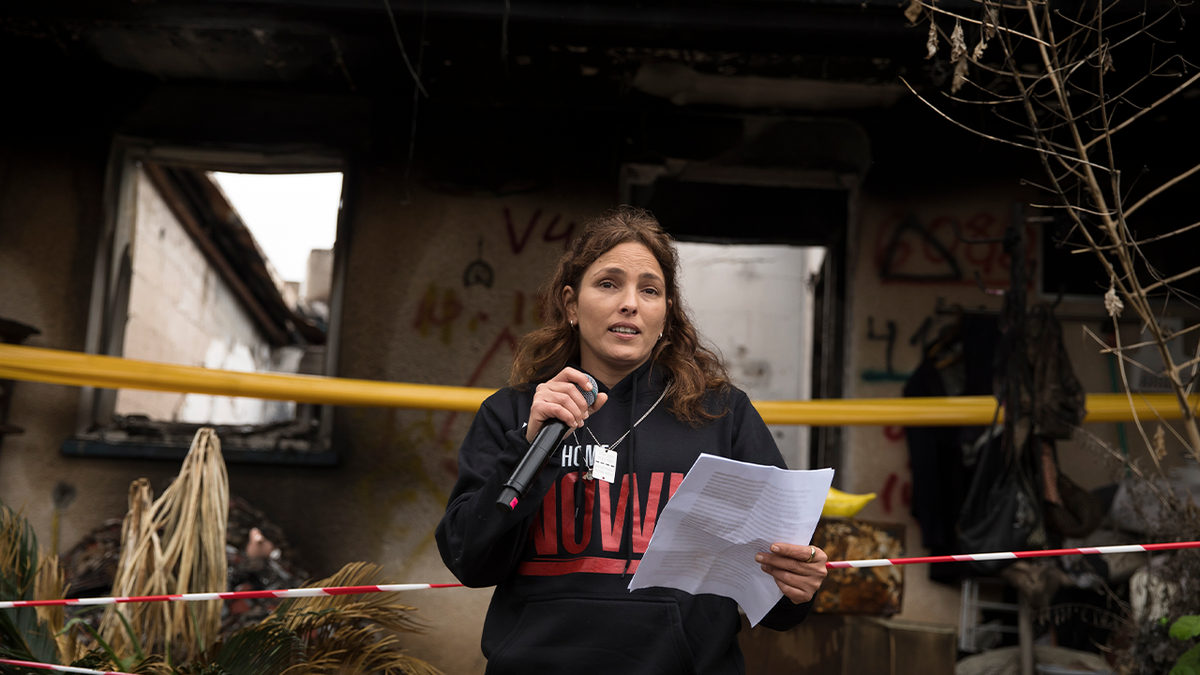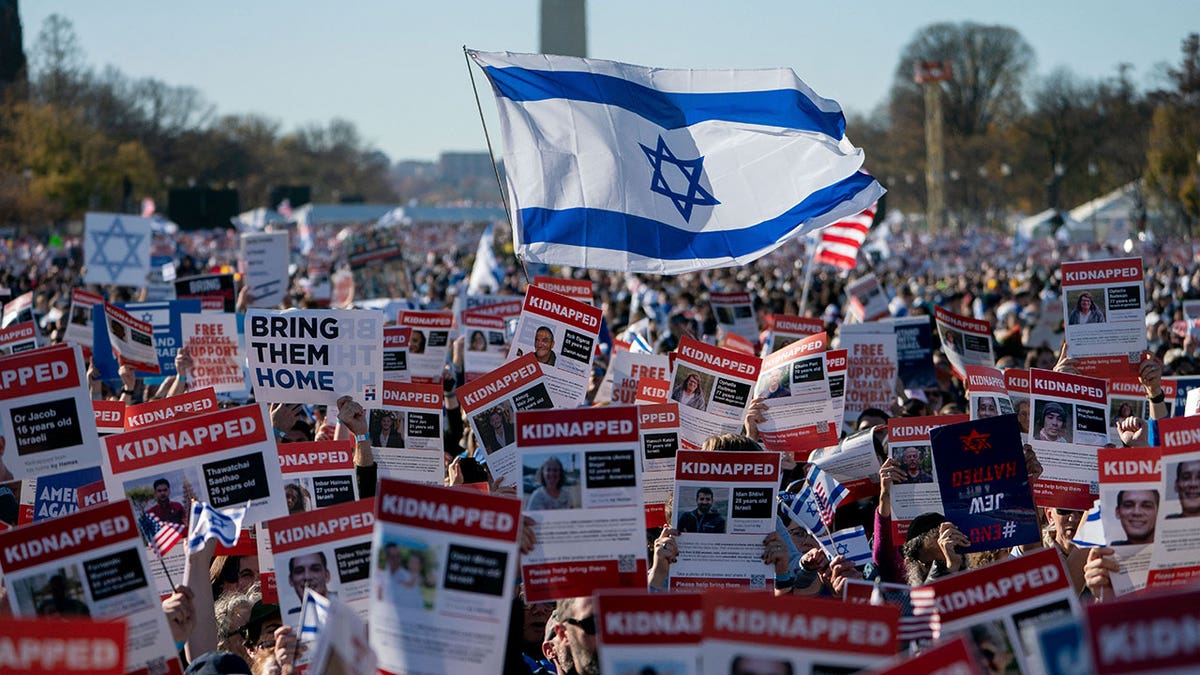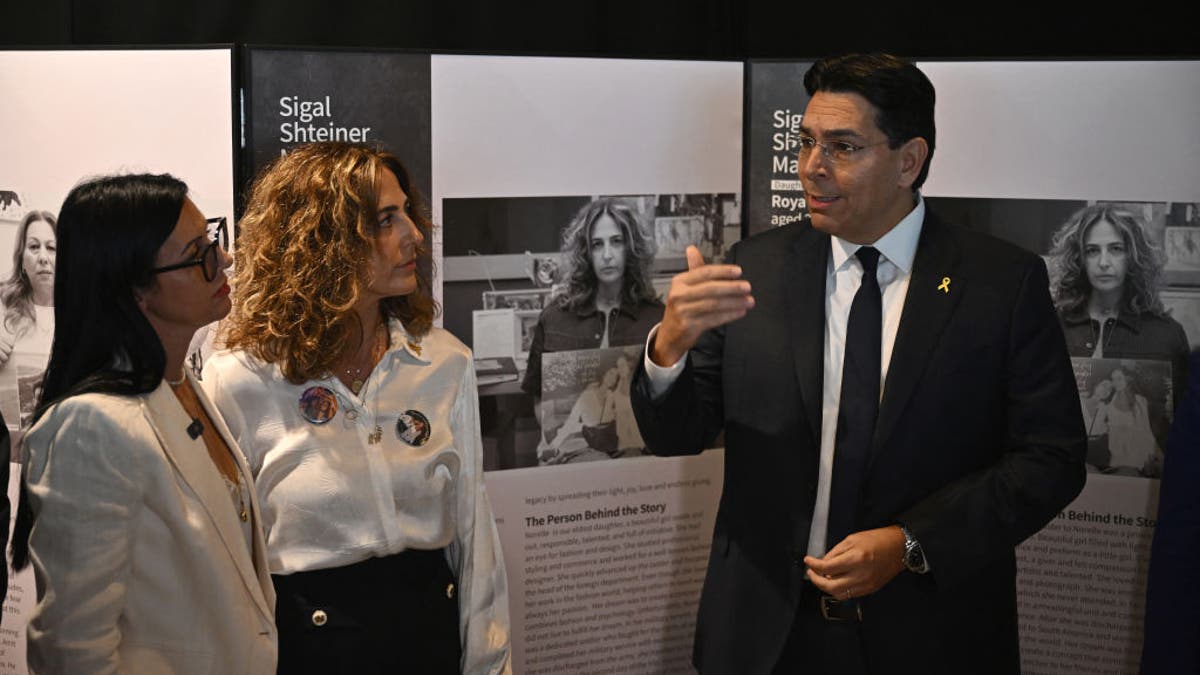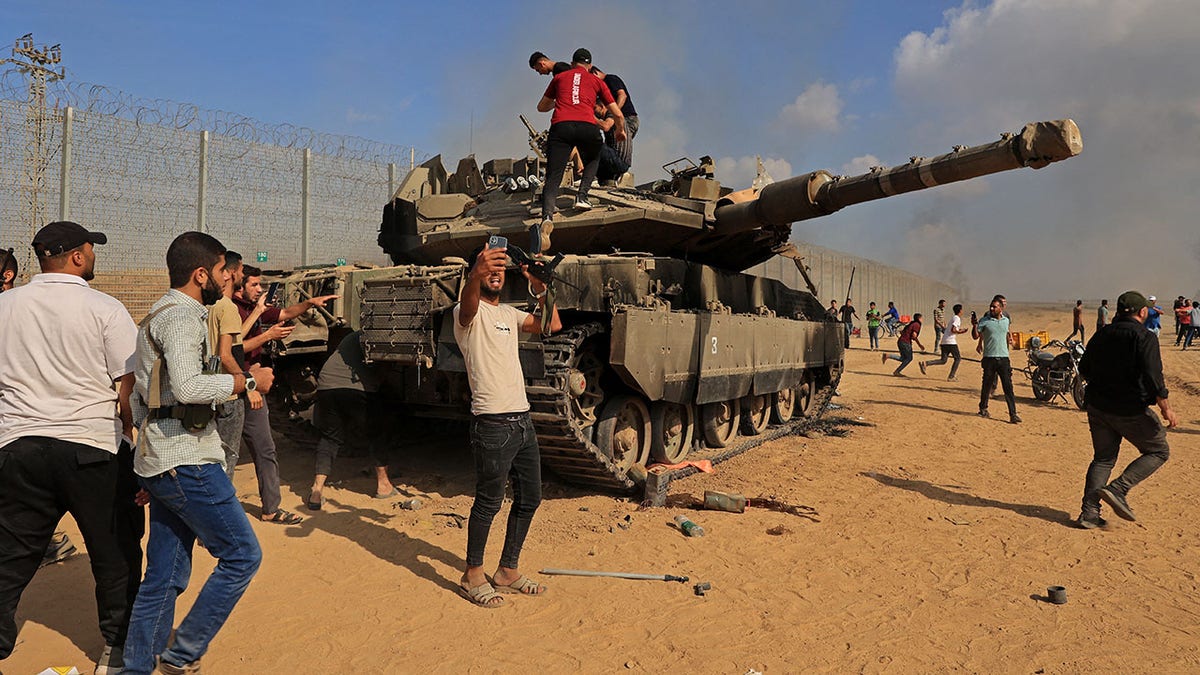Warning: This article includes graphic and disturbing accounts from the Oct. 7 massacre in Israel.
“My life, once simple and quiet, was shattered when I was taken hostage by this ruthless terror group.”
Amit Soussana, who became the first Israeli woman to speak publicly about the sexual violence she endured during her 55 days in captivity in Gaza after Hamas terrorists abducted her on Oct. 7, spoke before the United Nations (U.N.) on Wednesday at an event to mark the 15th anniversary of the establishment of the mandate on sexual violence in conflicts.
Soussana described her life before the Hamas attack, explaining, “I worked as an attorney in an office that I truly loved, rented a small house in the kibbutz, and my biggest concern, like most people, was deciding what to have for dinner.” She emphasized her commitment to privacy, saying, “I stayed away from social media and was a very private person. My privacy was and still is very important to me.”
Soussana was abducted from her home in Kibbutz Kfar Aza by a group of at least 10 men and forcibly taken to Gaza, where she was subjected to horrifying experiences. She was released in late November 2023 as part of the first and only hostage deal with Hamas.
HAMAS TERRORISTS ‘SYSTEMATICALLY AND INTENTIONALLY’ COMMITTED SEXUAL VIOLENCE DURING OCT. 7 ATTACK: REPORT
She recounted the day of her abduction, vividly remembering the peaceful Saturday morning that was a Jewish holiday, “Simchat Torah,” exactly a year before today – which is again the same holiday in Israel on Thursday.
“The tranquility was shattered by the sound of thousands of missiles launching from Gaza, followed by the terrifying approach of gunfire,” she recalled. Soussana barricaded herself in her safe room, her body trembling from fear, until a hand grenade exploded in her living room. “My home was invaded by heavily armed men in civilian clothing,” she said, detailing her shock and vulnerability.
In a state of distress, she described her abduction. “I was in my pajamas, barefoot, and decided to take the blanket from my bed to cover myself.” She was dragged from her burning house to the Gaza border, beaten severely along the way.

“It felt as though they were taking pleasure in hurting me,” she said. Despite the grave danger, she resisted, stating, “I feared for my body and soul more than I feared for my life. So I fought back.” As a result, she suffered significant injuries, including a broken eye socket and a knee injury that still affects her.
During her captivity, Soussana was chained by her ankle, unable to move. “I had to ask for permission to use the bathroom,” she explained, detailing her experience. “In that house, I was sexually assaulted by the Hamas terrorist who had guarded me.” She described the assault, saying, “He forced me to go to the shower and entered the room, pointed his gun at me. He was breathing heavily and had a monstrous beast-like face.” She recalled his intrusive questioning while he sat next to her in his underwear, lifting her shirt and touching her. “I knew exactly what he was planning to do, and yet I couldn’t do anything to prevent it. I was utterly helpless.”
UN FINALLY RECOGNIZES THAT ISRAELI WOMEN WERE RAPED, SEXUALLY ATTACKED BY HAMAS TERRORISTS

After the assault, she noted, “I wasn’t even allowed to cry or to be sad. I had no one to comfort me and was forced to act nice to the person who had just sexually assaulted me.” She continued, “Not a day goes by that I don’t think about what that terrible man did to me, but I keep reminding myself that I’m free now and that he can’t hurt me again.”
A few days later, she was transferred to a new location with different guards. “Even though I was terrified, I felt fortunate that at least I wasn’t with the man who sexually violated me,” she said. However, she faced further torment. “I was tortured, hung upside down, beaten, humiliated and feared for my life,” she recalled. Eventually, she was taken into an underground tunnel, where she felt as though she was “buried alive” and subjected to inhumane conditions.
After enduring an agonizing 55 days, she was finally freed but expressed that her sense of freedom was overshadowed by the plight of those still captive. “I do not feel free while others remain in captivity, enduring the same nightmare,” she stated, highlighting the promise she and other hostages made to fight for each other’s release. “Today, I honor this promise by telling my story,” she added.
CHILDREN ONCE HELD HOSTAGE STILL WORKING THROUGH TRAUMA: ‘ARE THEY COMING FOR US AGAIN?’

Soussana concluded her speech with a heartfelt plea to the U.N. “I urge you to fulfill your duty, take immediate action to secure the release of those still held captive,” she said. “Every day that passes steals another piece of their soul and endangers their life.” She called upon the U.N. to not turn a blind eye to the atrocities committed against innocent civilians. “It is your responsibility to protect human rights, to combat terrorism, and to bring those responsible for these heinous crimes to justice,” she urged.
As she finished, she reiterated her call to action. “The world is watching, waiting for the U.N. Security Council to live up to its mandate. I beg you, do not fail us. Secure the freedom of the hostages and ensure that no one else suffers the same fate. Remember, it is our collective duty to combat terrorism and protect human rights. The time to act is now.”

At the event, Israel’s Ambassador to the U.N. Danny Danon said, “We will not stop until all 101 of our hostages are released by Hamas.”
Danon thanked Soussana for her courage. “Thank you for sharing your story with the world and revealing again the true face of the terrorist organization Hamas. It is important to remember that the long hand of the IDF will reach everyone who belongs to the terrorist organization Hamas and eliminate him.”
In March, five months after the massacre, the U.N. published a report acknowledging that rape and gang rape, among other acts of sexual violence, likely occurred during the Oct. 7 Hamas attack and said there was “clear and convincing” evidence that hostages were raped while being held in Gaza, and that those currently held captive are still facing such abuse. Soussana was one of the witnesses in the report.
Among the 101 hostages still held in Gaza are women and children.
Read the full article here











